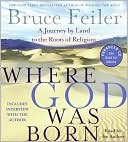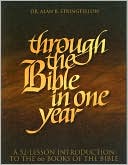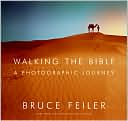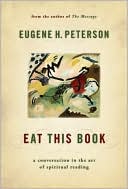Rick Warren's Bible Study Methods: Twelve Ways You Can Unlock God's Word
'The Spirit of God uses the Word of God to make us like the Son of God.'—Rick Warren in The Purpose Driven Life You were created to become like Christ. This is one of the five God-ordained purposes for your life described in The Purpose Driven Life by Rick Warren, and it's why studying the Bible is so important. The Bible's truths will transform you, aligning you with the character and ways of Jesus as you encounter him in the Scriptures. This easy-to-understand book shows you how to study...
Search in google:
Learn how to study the Bible the way Rick Warren does. With simple, step-by-step instructions, America's pastor guides you through twelve different approaches to studying God's Word for yourself. Doing so will help you fulfill the third purpose of The Purpose-Driven Life: becoming more and more like Jesus.
Rick Warren's Bible Study Methods\ Twelve Ways You Can Unlock God's Word \ \ By Rick Warren \ Zondervan\ Copyright © 2006 Rick Warren\ All right reserved.\ ISBN: 0-310-27300-5 \ \ \ Chapter One\ THE DEVOTIONAL METHOD OF BIBLE STUDY\ How to Apply Scripture to Life\ As we have already seen in the introduction, the ultimate goal of all Bible study is application, not interpretation. Since God wants to change our lives through his Word, it is important to learn how to apply Scripture to our lives before learning any other methods of Bible study. In fact, the techniques you learn in this chapter will be used in each of the following study methods. Regardless of the method you choose to use, at the end of each study you will need to make practical steps of application concerning the things the Lord shows you. (In this book, every time we talk about application, refer back to this method for an explanation.)\ When you use these techniques by themselves (and not with another method), it is called "The Devotional Method of Bible Study." This is the type of simple study that you can use in your quiet time.\ DEFINITION\ The Devotional Method of Bible Study involves taking a passage of the Bible, large or small, and prayerfully meditating on it until the Holy Spirit shows you a way to apply its truth to your own life in a way that is personal, practical,possible, and provable. The goal is for you to take seriously the Word of God and "do what it says" (James 1:22).\ WHY APPLICATION IS IMPORTANT\ The Bible was given to us to show us how we can have a relationship with Almighty God and how we are to live our lives his way in this world. It was given to change our lives to become more like that of Jesus Christ. The apostle Paul declared that it is useful for teaching, rebuking, correcting, and training the believer in righteous living (2 Tim. 3:16).\ The Bible is a practical book, for it is concerned with practical godly living. Bible study without personal application can be just an academic exercise with no spiritual value. The Bible was written to be applied to our lives. In his succinct way Howard Hendricks has said, "Interpretation without application is abortion!" We want to note here that application is necessary for our Christian lives, that it is hard work, and that good applications are possible if we follow some basic principles.\ APPLICATION IS NECESSARY FOR OUR LIVES\ Study of the Word of God should lead to its application in our lives, with the result that the Scriptures change us to conform more with the will of God.\ 1. You can't really get to know the Word of God unless you apply it to your life. During his ministry Jesus had a number of encounters with the religious leaders of his time. These were primarily the Pharisees, the acknowledged scholars of the day; the scribes, legal and religious experts in Jewish law; and the Sadducees, the liberalizing element in Jewish society at that time. On one occasion the Sadducees, who did not believe in the resurrection from the dead, asked Jesus a trick question.\ Jesus' answer is indeed interesting. He said to them, "You are in error because you do not know the Scriptures or the power of God" (Matt. 22:29). The Sadducees had an intellectual knowledge of the facts of the Jewish Scriptures (our Old Testament), but they did not apply these principles in a personal way.\ You can be a walking Bible encyclopedia, with your head crammed full of biblical knowledge, but it won't do you any good if you don't apply it practically in daily living. If you study the Word of God without applying it to your life, you are no better off than the Pharisees and Sadducees of Jesus' day. You really don't know the Scriptures until you put them into practice.\ 2. Studying the Word of God can be dangerous if you merely study it without applying it. Bible study without application can be dangerous because knowledge puffs up. The apostle Paul stated, "Knowledge puffs up, but love builds up" (1 Cor. 8:1). The Greek word translated "puffs up" contains the idea of being inflated with pride that in turn leads to arrogance. The Bible tells us that the devil knows the Word intellectually (see his temptation of Jesus-Matt. 4:1-11), and we also know that he is puffed up with pride and is arrogant. When you correctly apply the Word of God to your life, you eliminate the danger of being puffed up with pride.\ Bible study without application can be dangerous because knowledge requires action. What a man knows should find expression in what he does. James declared, "Do not merely listen to the word, and so deceive yourselves. Do what it says" (James 1:22). God's commands are not optional. He doesn't say, "Please won't you consider doing this?" He commands, "Do it!" And he expects us to obey.\ In the Sermon on the Mount, Jesus compared an obedient disciple to a wise man: "Therefore everyone who hears these words of mine and puts them into practice [action] is like a wise man who built his house on the rock" (Matt. 7:24). When the trials of life came along, the wise man's life stood firm while the foolish man's-the one who did not practice what he knew-came crashing down (Matt. 7:25-27). Also, King David was known as a man after God's own heart because he applied the Word to his life and practiced what he knew. The psalmist wrote, "I have considered my ways and have turned my steps to your statutes. I will hasten and not delay to obey your commands" (Ps. 119:59-60). You, too, need to put what you know into action.\ Bible study without application can be dangerous because knowledge increases responsibility. If you get serious about studying the Bible, you will be held more accountable than the average person, because with added knowledge comes added responsibility. James wrote, "Anyone, then, who knows the good he ought to do and doesn't do it, sins" (James 4:17). With a deeper knowledge of the Scriptures comes a stronger judgment if you fail to apply them. When you start studying the Bible, God begins showing you areas of your life that need changing and calls you to greater responsibility. If you are not planning on applying the lessons you receive from your Bible study, it would be better for you to not study the Bible at all! You will just be heaping more judgment on yourself!\ John Milton, a great Christian poet, is reputed to have said, "The end of all learning is to know God, and out of that knowledge to love and imitate Him." That sums up what we are talking about in applying our study of Scripture: we are to know God, love him, and then be like him.\ APPLICATION IS HARD WORK\ It would seem that applying the Bible would be fairly simple, but actually it is the hardest part of Bible study. Why is that? Application doesn't happen by accident. We have to plan for it, or it will never come about. Three things that make applying Scripture to our lives so difficult are that it requires thinking, the devil fights it viciously, and we naturally resist change.\ 1. Application is hard work because it requires serious thinking. Sometimes it takes a long period of meditation (concentrated, prayerful thinking) before we see a way to apply a truth of Scripture we have studied. Sometimes it may mean looking beneath a temporary rule to see a timeless principle in the text. Sometimes it means looking beyond a local custom to see a universal insight. All this takes time and concentration that we may be hesitant and reluctant to give.\ 2. Application is hard work because Satan fights it viciously. The devil's strongest attacks often come in your quiet time when you are trying to apply what you have studied. Satan knows that as long as you are content with merely having head knowledge of the Word, you are not much of a threat to his plans. But as soon as you get serious about making some changes in your life, he will fight you tooth and nail. He hates doers of the Word. He will let you study the Bible all you desire as long as you don't ask yourself, "Now what am I going to do with all that I've learned?"\ 3. Application is hard work because we naturally resist change. Often we don't "feel" like changing, which is what true application requires. We live by our emotions rather than by our wills, for we are content to stay the way we are. We hear Christians saying they don't feel like studying the Bible or they don't feel like praying or they don't feel like witnessing. Feeling has nothing to do with living the Christian life, for feelings come and go. The key to spiritual maturity is to live for Jesus Christ not because we feel good, but because we know it is the right thing to do. I have discovered that if the only time I study the Bible, pray, or witness is when I feel like it, the devil makes sure I never feel like it!\ You apply the Word of God to your life not because you may feel like it that day or week, but because you know God expects it of you. Applied Bible study as an act of the will leads to maturity and is a basis for stability in your Christian life.\ (Continues...)\ \ \ \ Excerpted from Rick Warren's Bible Study Methods by Rick Warren Copyright ©2006 by Rick Warren. Excerpted by permission.\ All rights reserved. No part of this excerpt may be reproduced or reprinted without permission in writing from the publisher.\ Excerpts are provided by Dial-A-Book Inc. solely for the personal use of visitors to this web site. \ \
Contents Preface. 9Introduction: How to Study the Bible. 15Preview of the 12 Bible Study Methods. 301. The Devotional Method of Bible Study. . 332. The Chapter Summary Method of Bible Study. . 493. The Character Quality Method of Bible Study. . 614. The Thematic Method of Bible Study. . 795. The Biographical Method of Bible Study . . 976. The Topical Method of Bible Study. . 1157. The Word Study Method of Bible Study. . 1338. The Book Background Method of Bible Study . . . . . . 1519. The Book Survey Method of Bible Study . . 16910. The Chapter Analysis Method of Bible Study. . 18911. The Book Synthesis Method of Bible Study. . 20712. The Verse-by-Verse Analysis Method of Bible Study . . 221Appendices A. How to Have a Meaningful Quiet Time. . 231B. General Questions for a Biographical Study. . 255C. A List of Positive and Negative Character Qualities. . 259D. A Partial List of Biblical People. . 262E. A Suggested List of Key Words for Study. . 264F. What to Look for in a Chapter Analysis Study. . . . . . . . . . . . . 265G. A Plan for Studying the Bible Systematically . . 267For Further Reading. 271
\ From Barnes & NobleLike any other lifelong task, studying the Bible requires a method. In this accessible book, Rick Warren, the author of The Purpose-Driven Life, proposes 12 approaches to the Good Book. Each of these methods can enhance your understanding of the Bible's message and meaning, and readers can pick the approach or approaches they find most fruitful.\ \







